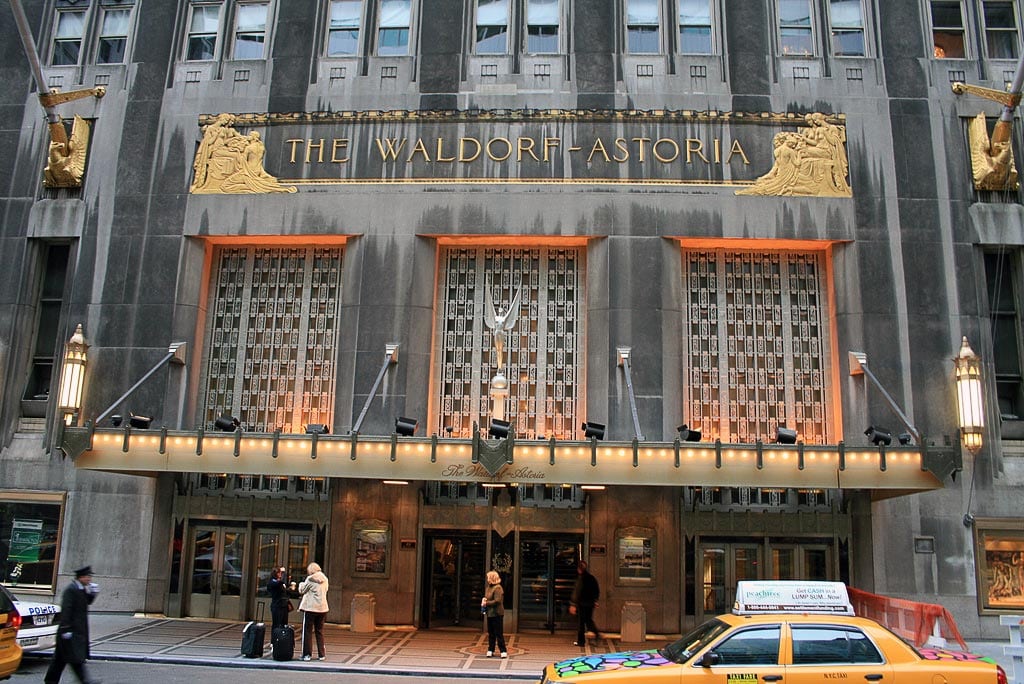Hilton to Sell Waldorf Astoria New York to Chinese Firm for Nearly $2 Billion

Skift Take
The speculation is now over as to when Hilton Worldwide would finally sell a huge asset, the Waldorf Astoria New York, as the company announced it reached a deal to sell the historic Manhattan property to Anbang Insurance Group Co. for $1.95 billion in cash.
Under the terms of the deal, the property will retain its brand, undergo a renovation, and will be managed by Hilton Worldwide for a term of 100 years.
Hilton says that for the 12 months ending June 30, 2014, the Waldorf Astoria New York contributed $15 million in net income and $61 million in adjusted EBITDA, net of management fees, to Hilton Worldwide and its stockholders.
Subject to regulatory approval, the deal is slated to close on December 31, 2014, but under certain conditions the closing date can be pushed to March 31, 2014.
The Chinese insurance company has put down a $100 million cash deposit for the transaction.
The Waldorf Astoria brand includes 27 properties, including hotels in Amsterdam, Beijing, Chicago, Dubai, Jerusalem, Ras Al Khaimah and Shanghai. It has a pipeline of nine properties, including hotels in Bali, Bangkok and Beverly Hills.
The Beijing-based buyer, Anbang Insurance Group, provides an array of insurance and financial services, including asset management, and has 700 billion yuan (about $114 billion) in assets.
Over the last few years, observers focused on a couple of key questions about Hilton Worldwide: when would it conduct an IPO, and well would it sell the Waldorf Astoria New York.
Those questions have now been answered as Hilton Worldwide raised $2.35 billion in its December 2013 IPO, and now it has reached a deal to sell the Waldorf Astoria New York.





